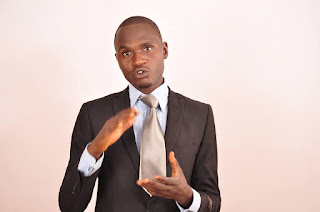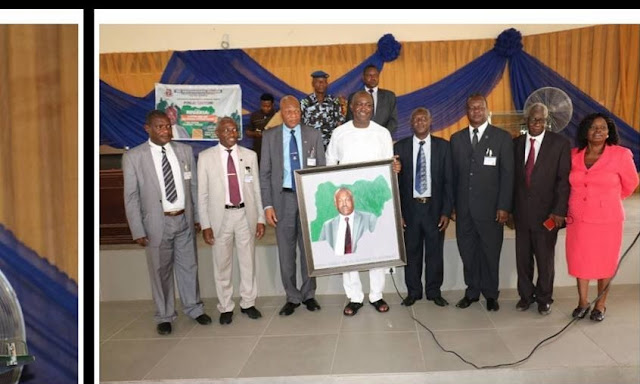When military were useless By Abdulrazaq Hamzat
The hate we instigate against each other will not consume the land we live on, the tribe we belong or the religion we practice, it would only consume us, the people, irrespective of tribe, region or religion.
Although, I may not be able to tell you how we could solve the herdsmen problem, but i know how we won’t ever solve it.
Instigating hate against each other will never solve the problem. This is something we all know, yet we continue to do the same thing over and over again. That's bad.
Some myopic people are quick to claim that division is a way out. But what do they know? I will only refer them to India and Pakistan. India and Pakistan have hated each other for more than 70years. Here is why. The British colonized Indian for more than 200 years and Indians weren’t happy about it. All the people’s rage were directed at the British and to put stop to such rage, British had an idea, ‘’divide and rule’’. What does that mean?
Muslims against Hindu’s, against Sikhs, against Christians. They put minorities in positions of power over majorities. The idea was, if you are fighting each other, you won’t have the time to fight the British.
This is not to say that Indians don’t fight each other before the coming of British over religion, but it is the first time that they fight over policy. Religion became more important than language and ethnicity and mistrust between religious communities became the norm.
Indian politician like the Muslim League Muhammad Jinah talked about having a separate Muslim state if the British would ever leave. Then, World Ward I began. The British promised to leave if the Indians fought for them in the war and they did. While they fought as agreed, British failed to fulfill it promise of granting them independence.
Then 20 years later, World War II started. Again, there was a promise of independence if the Indians fought for them, but the Indians say no way. This time, leaders like Mahatma Ghandi and Jawaharlal Nehru said no. However, Jinah, the Muslim league leader wanted a British support for a separate Muslim Country, so he convinced Indian Muslims to fight for the British and they did. By the time World War II ended, it was clear that the British would leave and grant India its independence.
Many Muslims began to fear living under the Hindu majority in a democratic India and many Hindu were angry that Muslims wanted to break up the country. This descended into brutal acts like killings, forced conversion, abduction, arson, rape and ethnic cleansing. The magnitude of this crisis scared the British and they promised to leave India in 1948, but their exit from India was not going to be clear or peaceful. The religious division they have stoked had turned into an inferno.
Jinah seized this opportunity to demand for a separate Muslim state. Nehru also scared by the violence reluctantly agreed. Mahatma Gandhi opposed it, but it was already too late. Thinking they had fixed things, the British announced they would now leave in 1947, a year earlier than planned. The British brought in a man, Cyril Radcliffe to divide the country. Cyril, who is a lawyer draw a border that would split India into two (2), taking into consideration religion, railway, water, irrigation canal and others. The lawyer was given 36 days to complete this task, which he did, 3 days ahead of schedule, but the lines that created West Pakistan, India and East Pakistan were kept secret until after independence.
Radcliffe didn’t quite finish his job though; he didn’t draw a line for Kashmir, a territory within India and Pakistan. What could possibly go wrong? Well, on August 14 1947, Pakistan gained Independence and a day later, India also gained Independence. Partition had become a reality.
However, if you think the story has a happy ending, you haven’t been paying attention. Here is the catastrophe that Radcliffe’s border line created on ground.
7 million people moved from India to Pakistan and another 7 million people moved from Pakistan to India. In the process, over 1 million people were killed, murdered, starved or poisoned. Mobs lynched trains full of people, men, women and children. Families have been split apart till this day. The military of the 2 countries were practically useless; soldiers were struggling to survive on their own due to the magnitude of the catastrophe.
From that day, August 1947 till today, the dust of violence has yet to settle. Since then, India and Pakistan have fought 3 wars over Kashmir and one war over East Pakistan, which eventually became Bangladash. Both countries still fight over disputed border and water. These wars drove both countries to become nuclear powers. Even cricket match between them are politically charged. And over 70 years, the divide between people who look the same, speak the same language, dress the same, eat the same food and even sing the same song have become deeper.
To the war mongers in lNigeria, learn from history. To the hate instigators, think again.
When there is a problem like that of herdsmen we are currently facing, trading ethnic and religious blame is not the way out. Instigating one ethnic group against the other is also not a way out. We must adopt the joint problem solving technique to come up with a creative solution.
By cursing, abusing and insulting others, you are not doing anything unique or special. Any one could easily curse and abuse. Even mad men on our streets are specialist in cursing and abusing. Does that mean we can't do any better? Trying to outdo each other in the use of vulgar, instigating and abusive languages can only bring our sanity to question.
We must therefore demonstrate that we are better than the mad men on the street through creative solution, not dissolution.
Abdulrazaq O Hamzat is the Executive Director of
Foundation for Peace Professionals. He writes from Abuja, Nigeria.





Comments
Post a Comment